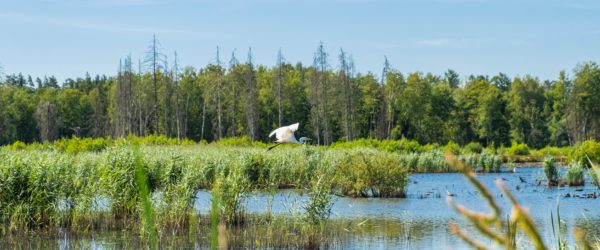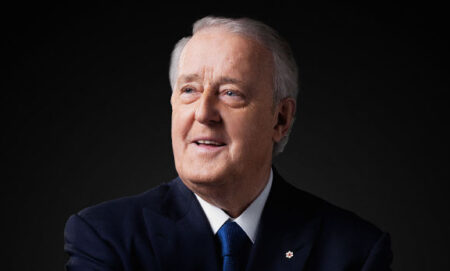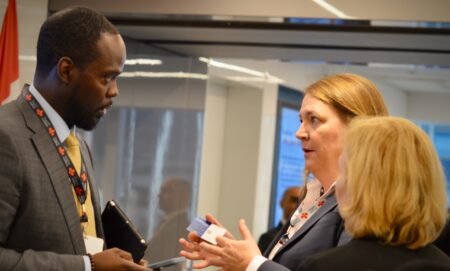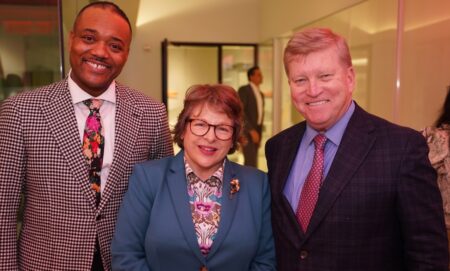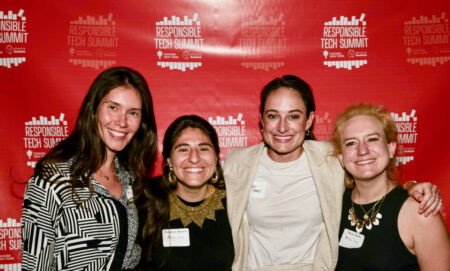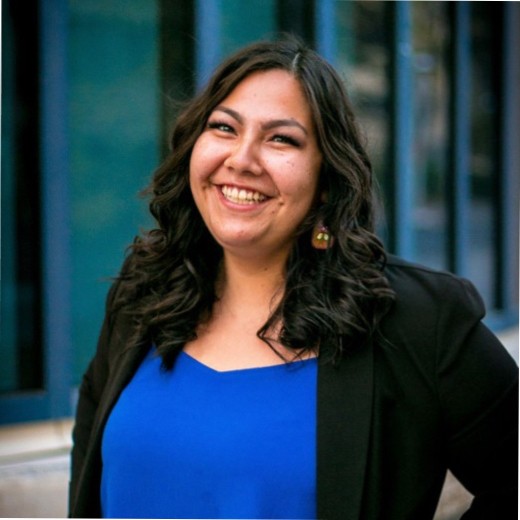
Danielle Kehler is a Plains Cree woman from the Kawacatoose First Nation on Treaty 4 territory. Now in her fourth year of a business management degree from the Edwards School of Business at the University of Saskatchewan, she’s also an artist exploring the resiliency of Indigenous people healing from intergenerational trauma. She’s also the first First Nations person to participate in the 2041 ClimateForce Antarctic Expedition, and the Vice-Chair of Delegate Relations for the SevenGen 2022 Indigenous Youth Energy Summit.
But she’s not doing any of this for herself. She’s doing it to motivate and mobilize the next generation of Indigenous youth. By encouraging a blend of traditional Indigenous environmental knowledge with Western science, Kehler believes Indigenous youth can lead communities through a just energy transition that will protect the earth for generations to come. We spoke to her recently to learn about the role of Indigenous youth in clean energy and the importance of representation in every conceivable sector.
What role do you see for Indigenous youth in the clean energy space?
Leading. Honestly, I think we’re going to be leading everyone through a just transition. I believe that traditional ecological knowledge is critical to the preservation of Mother Earth. I want to merge this knowledge with Western science to create sustainable solutions together. It’s an inclusive approach that focuses on the knowledge about how the land, water, biodiversity, and ecosystems all interconnect and how we benefit from their interaction. We know that clean energy is the way to go to make sure we’re doing our absolute best to look after Mother Earth as well as each other.
What would be an example of a sustainable solution?
I recently worked on an oil and gas project that took ancestral traditional ecological knowledge into its practice to study the effect of the drilling and mining sites on the surrounding water. Western science would sample the water, make a hypothesis, and that would be it. Through traditional ecological knowledge, an elder would tell you to look at the surrounding biodiversity, the animals and plans that grow in the land, even to look at the gallbladder of a beaver, because that would tell you more than a sample of water would in real time.
That’s the difference between traditional ecological knowledge and Western science. If merge them together and work with one another, we can create sustainable solutions in real time.
I want to merge this knowledge with Western science to create sustainable solutions together.
What level could these solutions be implemented at? Are these local or national?
I see them being implemented all over the world. Everything that we have to share is critical to the preservation of Mother Earth. We’re creating solutions that can be implemented at all different levels. Through SevenGen and the youth Indigenous council that I’m a part of, we’re trying to incorporate our ways of knowing into different sectors –trades, education, business, industry, government policy.
We see the need to mobilize the world to work with one another to create solutions that will actually work.
I know we need to mend broken relationships and move forward together. It’s the only way we’re going to bring about change in business and government.
Do you see a reconciliation aspect to what you’re doing?
I do. I’m a people person. I connect people. That’s what we’re trying to do with SevenGen as well. I know we need to mend broken relationships and move forward together. It’s the only way we’re going to bring about change in business and government.
Two terms on the SevenGen website stood out. For a non-Indigenous person, how would you explain the term kin energy?
I don’t like the term networking, because where we come from, our sense of community is what ties us together. Community is important to every Indigenous person. When we say kinship, we mean Indigenous and non-Indigenous people alike. We’re trying to expand our energy kin.
When I went on my expedition, I told people I was there to expand my own energy kin. It wasn’t about networking. It was about building a sense of community. That’s exactly what SevenGen is doing, too. We’re expanding our energy kin. Anyone can be involved in our community. Our energy kin connects us to the land and to Mother Earth.
How would you define Ideology of the earth?
Essentially it’s an inclusive term that means the preservation traditional ecological knowledge and our ancestors’ knowledge of the land. We come from different Nations with different knowledge and histories. The biodiversity, the animals, it’s all interconnected.
I never see anything in a linear way. Everything is a circle to me, and there are sacred teachings around a circle that are incorporated into the Ideology.

What would you want SevenGen conference delegates to come away with? What would be your ideal scenario?
That it would completely change their lives. I went to the first conference as an artist. I wasn’t in business. I wasn’t going to school. But I had an overwhelming sense that I had to protect Mother Earth with the traditions that were left to me from my grandmother, but I didn’t know how. Then I went to SevenGen and it completely blew my mind.
I remember thinking ‘I don’t belong here, I’m an artist. There are engineers and scientists and people in the climate space here.’ But then my friend James, who is on the organizing committee, said ‘we need warriors – on the front lines, in trade, in business, industry, everywhere’. And I thought, ‘Oh, I do belong here’. From then on it was a snowball and the opportunities just kept coming. Now I’m on the council for SevenGen.
I know that when the youth comes their minds will be blown – even they’re already active. And then they’ll go back home and start initiatives. We want to give youth the capacity to do that. I know that the youth that come will leave inspired. Our energy kin will keep evolving.
Nothing that I do is for me ... It’s strictly for the next seven generations and beyond.
How important is this conference to you personally?
It’s super-important. Nothing that I do is for me. It’s not for the glory or to get my name out there. It’s strictly for the next seven generations and beyond. It’s super-important to mobilize Indigenous youth because there are so many barriers and we need to occupy the same space unapologetically, share knowledge and evolve together. This conference is the most important thing for me. I’m so excited for it.
To what extent has what you’ve experienced through SevenGen affected your art?
Everything is interconnected. I have vision and dreams and those become my paintings. A lot of my dreams started when I started working with SevenGen. I had another vision when I came back from my expedition and now I’m going to be doing a cross-Canada exhibit about my experience and journey as an Indigenous woman. But the exhibit won’t just be about my journey. It’s the story history of Indigenous women in Canada.
I do this as a new program within SevenGen. I’m going to create it and then leave it to the next generation. It will all revolve around Indigenous ways of knowing, traditional ecological knowledge, the climate crisis, and sustainable solutions.
I’m committed to creating space for Indigenous youth to be heard, seen and included, especially in spaces we haven’t occupied before. Indigenous representation means everything to me.
How important is Indigenous representation to you personally?
I’m committed to creating space for Indigenous youth to be heard, seen and included, especially in spaces we haven’t occupied before. Indigenous representation means everything to me. It’s been the most challenging thing I’ve ever had to experience in my journey thus far and I know that’s the experience for most Indigenous people.
We need representation in every single sector. That’s why I do this work. It’s not for me. It’s to eliminate the barriers and cycles of intergenerational trauma that Indigenous youth have to heal from. I’m constantly trying to find ways to break barriers so Indigenous youth can conquer these spaces and do the work. Our youth are our future leaders. We need to mobilize them and get them ready for the real world. I want them out there contributing to solutions across all avenues.
Everyone in SevenGen wants to accomplish this. We come from different backgrounds. We’re teachers, social workers, engineers – but we’re all working together to incorporate our ideas and ideologies into these different sectors so we can mobilize youth. That’s what I’m working towards. I don’t tell them that the sky’s the limit, because that’s just another barrier. I tell them to shoot for the stars.
Scholarships available!
The Consulate General of Canada in New York will be providing scholarships to attend the 2022 SevenGen Indigenous Youth Energy Summit in Saskatoon, Saskatchewan from September 8-11, 2022. Scholarships will cover all conference fees, travel, accommodation and meals during the conference. They are available to people between the ages of 18-30 who identify as a member of an Indigenous community and currently reside in New York, New Jersey, Connecticut, Delaware or Pennsylvania. Applications close June 15, 2022. Apply now!

